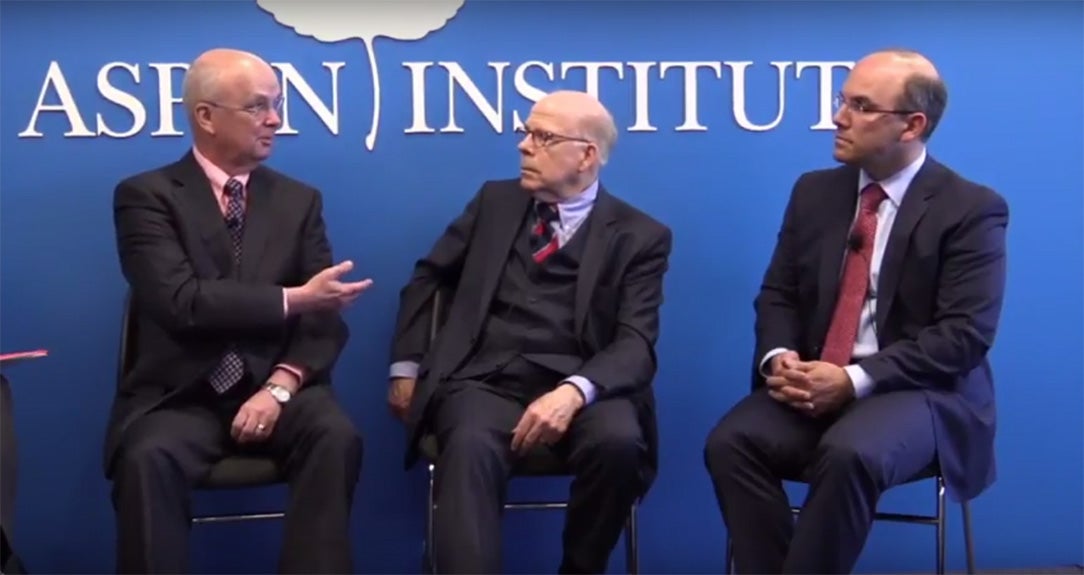Floyd Abrams has been one of the greatest influencers of First Amendment law over the last 50 years. His appearances before the Supreme Court as an advocate of free speech have shaped Americans’ own understanding of their constitutional rights. His latest book, The Soul of the First Amendment, examines the degree to which our laws protect free speech. In a conversation with Meryl Chertoff, Executive Director of the Aspen Institute Justice and Society Program, Abrams recounted the evolution of First Amendment jurisprudence over the course of his illustrious career.
Abrams is perhaps most recognizable for his role in the 1971 Pentagon Papers case. Back then he defended the right of The New York Times to publish top-secret documents concerning the Vietnam War. However, when it comes to the sensitive information disclosed by Edward Snowden and Julian Assange of Wikileaks, Abrams takes a very different stance. While the Pentagon Papers were an embarrassment for the US government, he views recent leaks of intelligence files as a threat to our national security and diplomatic relations.
Recently, Abrams found himself on the opposite side of popular opinion when he represented the interests of Citizens United in the eponymous Supreme Court case. An absolutist in regards to speech protection, Abrams argued that any restriction on corporate speech would apply to media companies equally as it would ads by the Koch Brothers. Moderating corporate influence and contributions, then, would be tantamount to government oversight of free speech.
First Amendment rights in the digital age are a new topic of conversation for Abrams and his colleagues. The debate over free speech on social media rose in part after the president began to block certain users from his Twitter feed. Abrams explains that while Twitter itself is a private entity, Press Secretary Sean Spicer has said that the president’s tweets are ‘official statements’. This remark has bolstered the Knight Foundation’s argument that denying anyone access to these statements violates their right to free speech.
It often seems like, when it comes to protecting freedom of speech, the stakes have never been higher. In both the courtroom and the newsroom, defenders of the First Amendment continue to argue for honesty and transparency. And as the debate progresses, the words and actions of Floyd Abrams will continue to frame the story.


